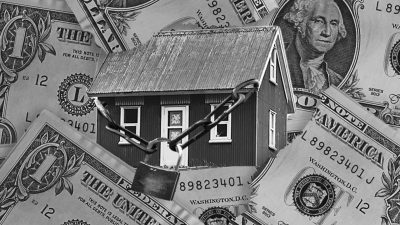The United States, yet again, is in a housing crisis.
Harvard University’s Joint Center for Housing Studies publishes a special report annually on the country’s housing market. “The State of the Nation’s Housing” 2021 assessment describes an unsettling reality.
It warns that even with considerable federal government assistance and intervention, more support is required to ensure that thousands of Americans are not forced out of their homes.
“[F]or millions struggling to cover rent or mortgage, their housing situations have become increasingly insecure and these disparities are likely to persist even as the economy recovers, with many lower-income households slow to regain their financial footing,” said Chris Herbert, the managing director of Harvard’s Housing Studies Center, as quoted in a Bay State Banner article.
The housing market favors buyers wealthy enough to cover down payments and closing costs, or those with savings hefty enough to make cash offers on homes. As reported by the 2021 assessment, the skyrocketing cost of housing is attributable to the low supply yet high demand of available housing for the affluent.
This inequitable commodities exchange worsens housing affordability and prospects for moderate and low-income households. Unfortunately, low-income households are the socioeconomic demographic that suffered the most layoffs and reduced working hours due to the pandemic.
The pandemic not only revealed but exaggerated the influence of unequal access to affordable and decent housing. Millions of Americans that lost income as a direct result of the COVID-19 pandemic continue to struggle with housing insecurity.
However, family units with secure employment and high-quality housing remain prosperous as the pandemic endures. These inequalities will likely linger even as the economy recovers.
Low-income homes will have difficulty reclaiming financial footing and even face possible foreclosure or eviction, Harvard’s report asserts. Additionally, Black Americans are suffering disproportionately compared to white Americans within the current housing crisis.

Due to historical oppression and discriminative, often intentional, structural barriers, the pandemic worsened Black Americans’ circumstances by implanting a two-fold crisis in personal finance and health. For communities of color, the result of this crisis is greater unemployment and fewer savings.
In 2021, the median income for white households was $71,000. For Latino households, the median was $55,000.
Black households fall behind Latino households and significantly behind white households with a median household income of $43,000. A lower median income translates to surpassing housing insecurity and increased foreclosing.
To combat this housing crisis, the U.S. Department of the Treasury enacted the Emergency Rental Assistance Program (ERAP) to make federal funding available to citizens struggling to pay rent or utilities. Through the Consolidated Appropriations Act and President Biden’s American Rescue Plan Act of 2021, the two ERAP programs cost the US taxpayer $46.55 billion.
While ERAP should aid those families in dire need of assistance in the short term, it will not fix the underlying long-term problem of deep wealth inequality in the United States. Steep wealth inequality is the true reason for America’s housing crisis, only exacerbated by the pandemic.
So, if the housing crisis can not be solved by temporary federal assistance, what will resolve it?
Most housing experts agree that the crisis will not be settled through solely market intervention. “The private market on its own never supplies an adequate number of affordable homes for the lowest-income renters,” said Dan Threet, an analyst at the National Low Income Housing Coalition, as quoted in The New York Times.
“In the age of neoliberalism, far too much time and money has been spent on trying to coax private markets into accomplishing policy objectives,” wrote Ryan Cooper and Saoirse Gowan in the Jacobin magazine.
The government should build public housing units, some progressives argue. Rep. Ilhan Omar’s Homes for All Act proposes the federal government fund the construction of 12 million new homes over the next 10 years.
Others, like the New York Times’ Binyamin Appelbaum, would rather subsidize private development areas in need of affordable housing through tax credits and direct government spending. Appelbaum also argues that the federal government must expand its housing voucher program for tenants across America.
Republicans, however, have historically chosen to ignore housing crises. The most popular argument Republicans make when deflecting questions about the weak housing economy is that a bettering economy with more jobs will solve the issue in itself.
The State of the Nation’s Housing 2021 report proves this argument is demonstrably false. Whatever the route this government chooses to solve this housing crisis, one fact is clear. The last thing America can do is ignore it.




















































































































